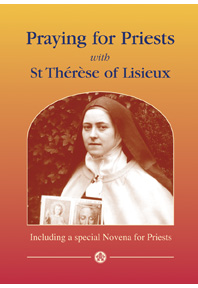On the vigil of the Feast of the Sacred Heart in 2009, I am happy to present the poem "To the Sacred Heart of Jesus." Therese wrote this poem either in June 1895 or in October 1895 at the request of her sister, Marie of the Sacred Heart. She does not understand the Heart of Jesus as demanding reparation, but as "burning with tenderness." In her daring climax, she chooses that Heart for her purgatory.
“To the Sacred Heart of Jesus”
At the holy sepulchre, Mary Magdalene,
Searching for her Jesus, stooped down in tears.
The angels wanted to console her sorrow,
But nothing could calm her grief.
Bright angels, it was not you
Whom this fervent soul came searching for.
She wanted to see the Lord of the Angels,
To take him in her arms, to carry him far away.
Close by the tomb, the last one to stay,
She had come well before dawn.
Her God also came, veiling his light.
Mary could not vanquish him in love!
Showing her at first his Blessed Face,
Soon just one word sprang from his Heart,
Whispering the sweet name of: Mary,
Jesus gave her back her peace, her happinesss.
O my God, one day, like Mary Magdalene,
I wanted to see you and come close to you.
I looked down over the immense plain
Where I sought the Master and King,
And I cried, seeing the pure wave,
The starry azure, the flower, and the bird.
“Bright nature, if I do not see God,
You are nothing to me but a vast tomb.”
I need a heart burning with tenderness
Who will be my support forever,
Who loves everything in me, even my weakness...
And who never leaves me day or night.”
I could find no creature
Who could always love me and never die.
I must have a God who takes on my nature
And becomes my brother and is able to suffer!
You heard me, only Friend whom I love.
To ravish my heart, you became man.
You shed your blood, what a supreme mystery!...
And you still live for me on the Altar.
If I cannot see the brilliance of your Face
Or hear your sweet voice,
O my God, I can live by your grace,
I can rest on your Sacred Heart!
O Heart of Jesus, treasure of tenderness,
You Yourself are my happiness, my only hope.
You who knew how to charm my tender youth,
Stay near me till the last night.
Lord, to you alone I’ve given my life,
And all my desires are well known to you.
It’s in your ever-infinite goodness
That I want to lose myself, O Heart of Jesus!
Ah! I know well all our righteousness
Is worthless in your sight.
To give value to my sacrifices,
I want to cast them into your Divine Heart.
You did not find your angels without blemish.
In the midst of lightning you gave your law!...
I hide myself in your Sacred Heart, Jesus.
I do not fear, my virtue is You!...
To be able to gaze on your glory,
I know we have to pass through fire.
So I, for my purgatory,
Choose your burning love, O heart of my God!
On leaving this life, my exiled soul
Would like to make an act of pure love,
And then, flying away to Heaven, its Homeland,
Enter straightaway into your Heart.
The Poetry of Saint Therese of Lisieux, tr. Donald Kinney, O.C.D. Washington, D.C.: ICS Publications, 1996, pp. 117-120. All rights reserved. Used with permission.
To read this and all of Therese's 54 poems, please order a copy of the book "The Poetry of Saint Therese" by clicking on the icon below. This edition is the only English translation from the critical and complete edition of Therese's manuscripts of her poetry. Even if you have read some other translation, I urge you to read this one, which includes the original French text and English notes rich in interest.





